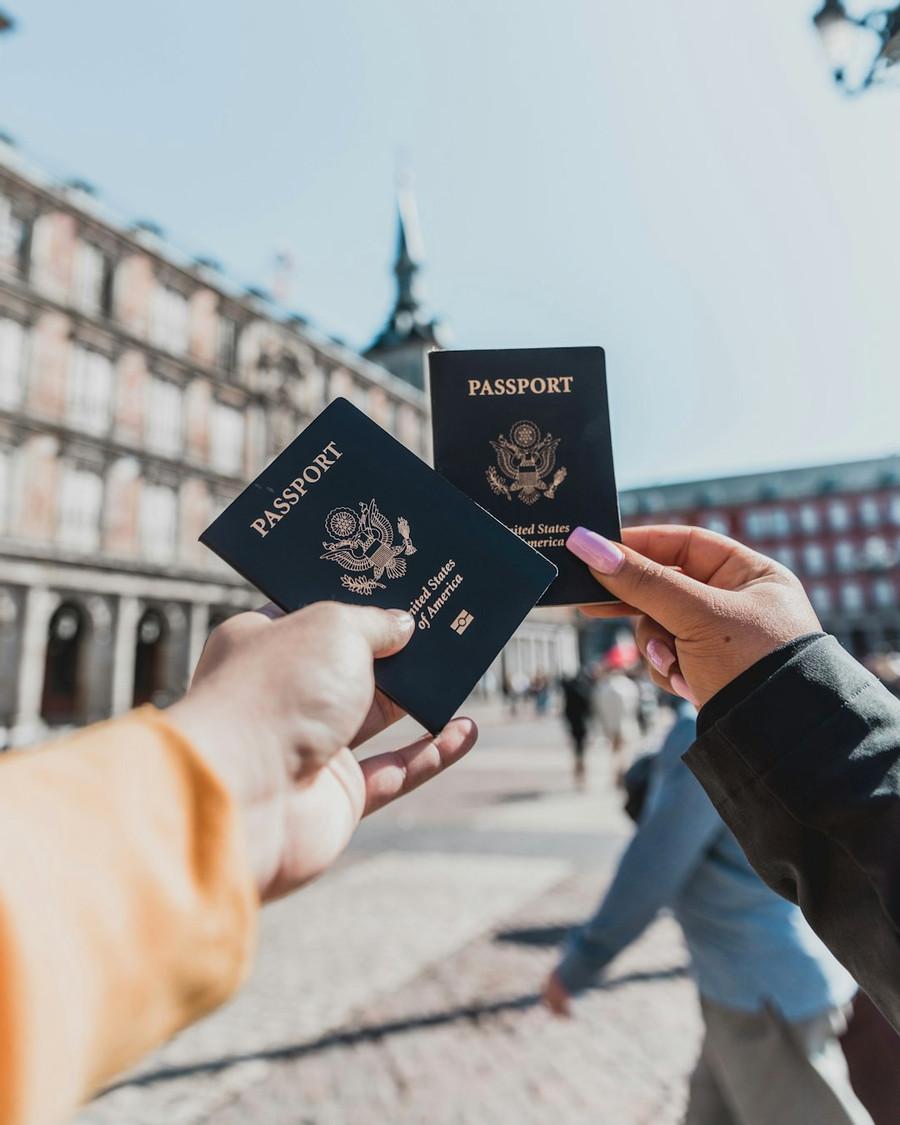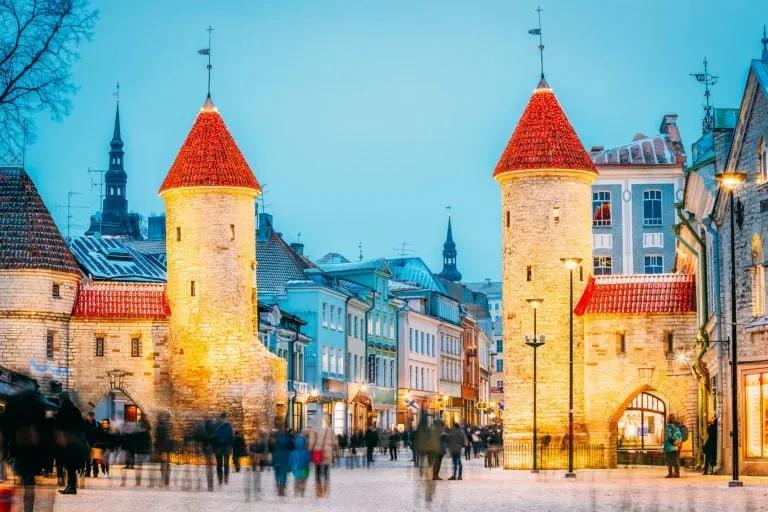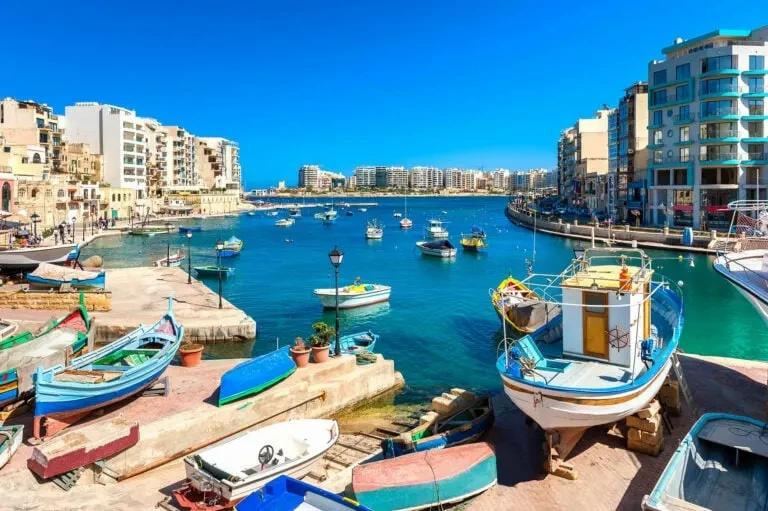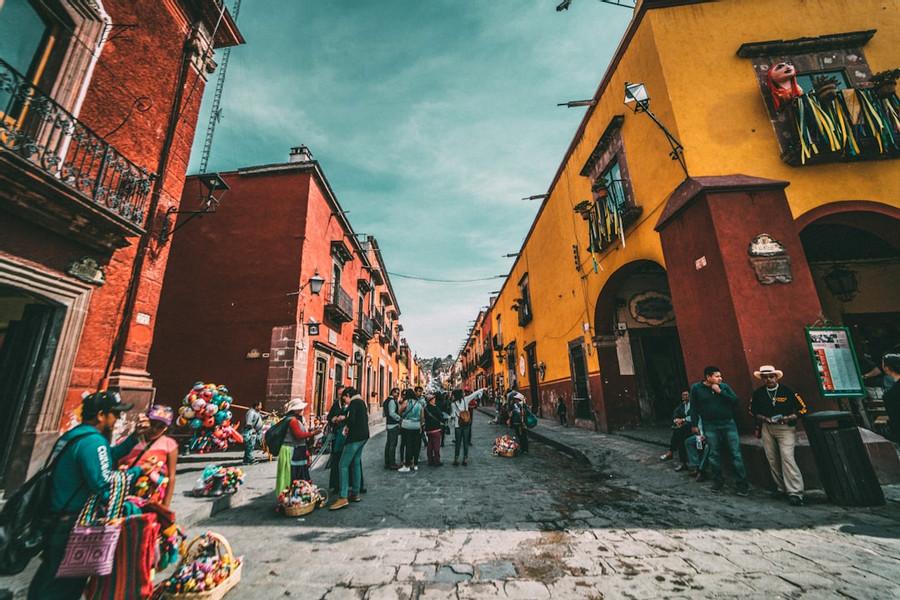Explore the World's Best Ideas
Join today and uncover 100+ curated journeys from 50+ topics. Unlock access to our mobile app with extensive features.
The Premise
Traveling the world while working online from your laptop has been a dream for millions of self-proclaimed digital nomads.
However working from foreign countries while traveling on a tourist visa is technically illegal in most places.
Tourist visas also usually expire after 30-90 days, and it’s not always easy to renew them. What if you want to stay longer?
That doesn’t stop digital nomads from working while traveling, but it can make things complicated, and with travel restrictions due to COVID-19, it’s much more difficult to work & travel internationally.
158
1.29K reads
Countries Creating Visas For Remote Work Tourists
Some countries have recognized the need for so-called “digital nomad visas”, “remote work visas”, or “freelancer visas” specifically to entice foreigners to come work & contribute to their economies.
Many of these destinations are hoping the remote work visas will generate income to help make-up for lost tourism revenue due to the pandemic.
153
1.19K reads
Digital Nomads vs Freelancers
Digital nomads are basically remote workers who travel to different locations on a regular basis. They use modern technology to work from coffee shops, hotels, co-working spaces, or libraries with a WiFi connected laptop or smartphone from anywhere in the world.
Freelancers are self-employed, working for themselves or other companies as independent contractors. Freelancers can travel while they work, or just work from home while living in one place on a long-term basis.
156
1.11K reads
Antigua & Barbuda
The Caribbean island nation of Antigua & Barbuda has announced a digital nomad visa called the Nomad Digital Residence (NDR). It’s for remote workers who can show the means to support themselves and any family members joining them.
This visa is good for 2-years, and visitors will be required to maintain their own health insurance plan while staying within the country and enjoying its 365 different beaches.
169
1.09K reads
Bali
The beautiful island of Bali, Indonesia has long been a popular location for remote workers to base themselves. And while there are no formal details just yet, Bali has just announced they are looking to implement a brand new digital nomad visa sometime later this year.
The Bali remote work visa would be good for up to 5-years, and holders of the visa would NOT have to pay taxes on any income earned outside Bali.
173
938 reads
Barbados
Barbados has also opened its borders to digital nomads and remote workers who are looking to escape the pandemic while basing themselves in a beautiful island destination.
The “Barbados Welcome Stamp” is a special 12-month visa for remote workers, which can also be renewed for even longer. Why not live next to the beach and work from home in Barbados!
161
786 reads
Bermuda
Bermuda joined the remote work visa club! Their recently released “Work From Bermuda” digital nomad visa is just an expansion of an older residency program, which allows digital nomads and remote workers to stay in the country for up to a year.
Aimed at professionals who normally work from home, they hope the new visa will attract long-term travelers who want to base themselves from an island destination.
159
668 reads
Cayman Islands
The Cayman Islands launched a special visa for digital nomads called the Global Citizen Certificate (GCC). It allows travelers to stay in the islands for up to 2 years.
The income requirements are much steeper than other countries in this list though: individuals must provide proof of an annual salary of at least $100,000, or $150,000 for couples.
158
721 reads
Costa Rica
There are many digital nomads who choose to base themselves in Costa Rica due to the relaxed lifestyle, great surfing, nice beaches, and diverse landscape of volcanoes, waterfalls, and jungle.
Costa Rica has a freelancer visa called the Rentista, allowing foreigners to stay for up to 2-years, with the ability to extend it. Often used by retirees with a fixed income and some entrepreneurs — because you can’t be an employee for another company on the Rentista.
164
664 reads
Croatia
As of January 2021, Croatia has started issuing digital nomad visas. The visa is available for different lengths of time, with a maximum of 12-months. You need to physically be in Croatia to apply for this long-term residence permit, you can’t apply from overseas.
158
699 reads
Czech Republic
Spend your weekends exploring the historical towns and mountains of this Central European country, and work remotely during the week using their fast internet connection! The Czech Republic offers a freelancer visa called the Zivno. It’s valid for one year, and can be extended too. It’s a bit more complicated than other visas in this list, but it’s doable.
156
580 reads
Dubai (UAE)
The city of Dubai in the United Arab Emirates has just launched their own one-year virtual working program in October allowing digital nomads and remote workers to live and work by the beach from their famous desert oasis mega-city.
The new remote work visa gives you the freedom to come to Dubai, bring your family, work remotely all while remaining employed in your home country. Dubai does not levy income tax on individuals. You also get access to all required services, including telecoms, utilities, and schooling options.
156
570 reads
Estonia
Estonia became the first country to create an e-residency program that allows foreign entrepreneurs to license an EU-based online business. Then, in June 2020, they also opened up a one-year digital nomad and freelancer visa that allows foreigners to live in the country while working remotely.
158
580 reads
Georgia
Partly due to the dramatic drop in tourism because of the Coronavirus pandemic, the country of Georgia is one of the latest to offer a digital nomad visa called “Remotely from Georgia” to help stimulate their economy. If you’re a remote worker, why not wait out the pandemic and work from a country known for its low-cost of living, colorful cities, and epic mountain landscapes?
157
503 reads
Germany
Germany has its own special freelance visa called the Aufenthaltserlaubnis für selbständige Tätigkeit (good luck saying that!). It’s a residence permit that allows foreign freelancers and self-employed people live in Germany for 6-months up to 3-years. One downside is that it can take 3-4 months to get approved for this visa. Plus speaking German, or knowing someone who does, will help a lot.
160
569 reads
Hungary
The nation of Hungary has long been a favorite stop for digital nomads, especially the capital city of Budapest. Well now they’ve made it even easier to stay long-term, with their new “White Card” – a special 1-year long digital nomad residency program.
157
491 reads
Iceland
Iceland has its own long-term visa for remote workers and digital nomads! There is lots of cool stuff to see in Iceland. Landscapes that look like they were crafted from your wildest dreams.
Iceland’s long-term visa is good for only 6-months though, so it’s one of the shortest digital nomad visas available. If you apply while you’re already in the European Schengen Area, then it’s only good for 90-days.
158
476 reads
Malta
Malta has created its own Digital Nomad Residence Permit specifically targeting remote workers from outside the EU. The Mediterranean island of Malta has been attractive to digital nomads for years now, due to its sunny island lifestyle, widely spoken English, and strong internet infrastructure (including nationwide 5G service).
It’s also located close to mainland Europe, North Africa, and the Middle East — which means there are many opportunities for travel addicts to get out and explore nearby.
163
468 reads
Mauritius
Mauritius is another island nation that has just launched their own special visa for remote workers. It’s a stunningly beautiful country, with crystal clear water, thick jungle, and epic mountain peaks to climb.
To qualify for their one year long (and completely FREE) Premium Visa, you need to produce proof of your long stay plans and sufficient travel and health insurance during your stay.
158
496 reads
Mexico
Mexico is a favorite hot-spot for digital nomads, partly due to their long 6-month tourist visa, however they also offer a Temporary Resident Visa that’s good for one year with the ability to renew for another 3 years.
You will need to provide documents proving that you had a monthly income of at least $1,620 USD over the last 6-months or a bank account balance of $27,000. Mexico is open to offering temporary residency to remote workers that are financially self-sufficient.
162
470 reads
Norway
Norway has been in the news a lot lately, touted as a Scandinavian paradise with its strong social democratic system, wealth, natural beauty, and progressive population.
Lots of foreign digital nomads and remote workers would jump at the chance to move to Norway. And they can, for up to 2-years, with Norway’s Independent Contractor visa.
160
472 reads
Portugal
Portugal offers both a temporary resident visa (D7 passive income visa) and residence permit for independent workers and entrepreneurs for one year, with the ability to renew for up to 5 years. After 5 years you can apply for permanent residency.
As a foreign visa holder and resident, you will be given a residence card, the Título de Residência. This is your official ID in Portugal. The beautiful Portuguese island of Madeira in particular has become a remote worker hub, especially with the launch of their Digital Nomads Village.
162
456 reads
Spain
Spain has a Non-Lucrative Visa which allows foreigners to stay in Spain for at least a year, with the ability to renew. With it’s low-cost of living and mix of beaches, mountains, and relaxed lifestyle, it’s a favorite with many location independent people. However technically you are not allowed to “work” on this visa — they’re looking for people who are “retired” and self-sufficient.
160
469 reads
Anguilla
Finally, the British territory of Anguilla has just launched their own special visa for digital nomads who would like to “work from home” on a beautiful Caribbean island destination.
There is an additional fee to pay, $2000 per individual or $3000 per family which covers two (2) tests per person, surveillance and costs associated with the additional public health presence, the cost of extended immigration time/entry and a digital work permit.
154
435 reads
Living A Nomadic Life Overseas
This relatively new phenomenon of countries launching digital nomad visas to attract remote workers was predicted over 20-years ago by Japanese technologist Tsugio Makimoto who wrote that remote working would force nations “to compete for citizens”, and that digital nomad-ism would prompt “declines in materialism and nationalism”.
His prophecy is coming true, and hopefully there will be many more nations opening up their borders to these “citizens of the world” who are able to work remotely from their laptops in the years to come.
157
520 reads
IDEAS CURATED BY
CURATOR'S NOTE
Working from around the world.
“
Angel 's ideas are part of this journey:
Learn more about remotework with this collection
How to build a network while working remotely
How to work remotely
How to manage finances while working remotely
Related collections
Similar ideas
Read & Learn
20x Faster
without
deepstash
with
deepstash
with
deepstash
Personalized microlearning
—
100+ Learning Journeys
—
Access to 200,000+ ideas
—
Access to the mobile app
—
Unlimited idea saving
—
—
Unlimited history
—
—
Unlimited listening to ideas
—
—
Downloading & offline access
—
—
Supercharge your mind with one idea per day
Enter your email and spend 1 minute every day to learn something new.
I agree to receive email updates
























